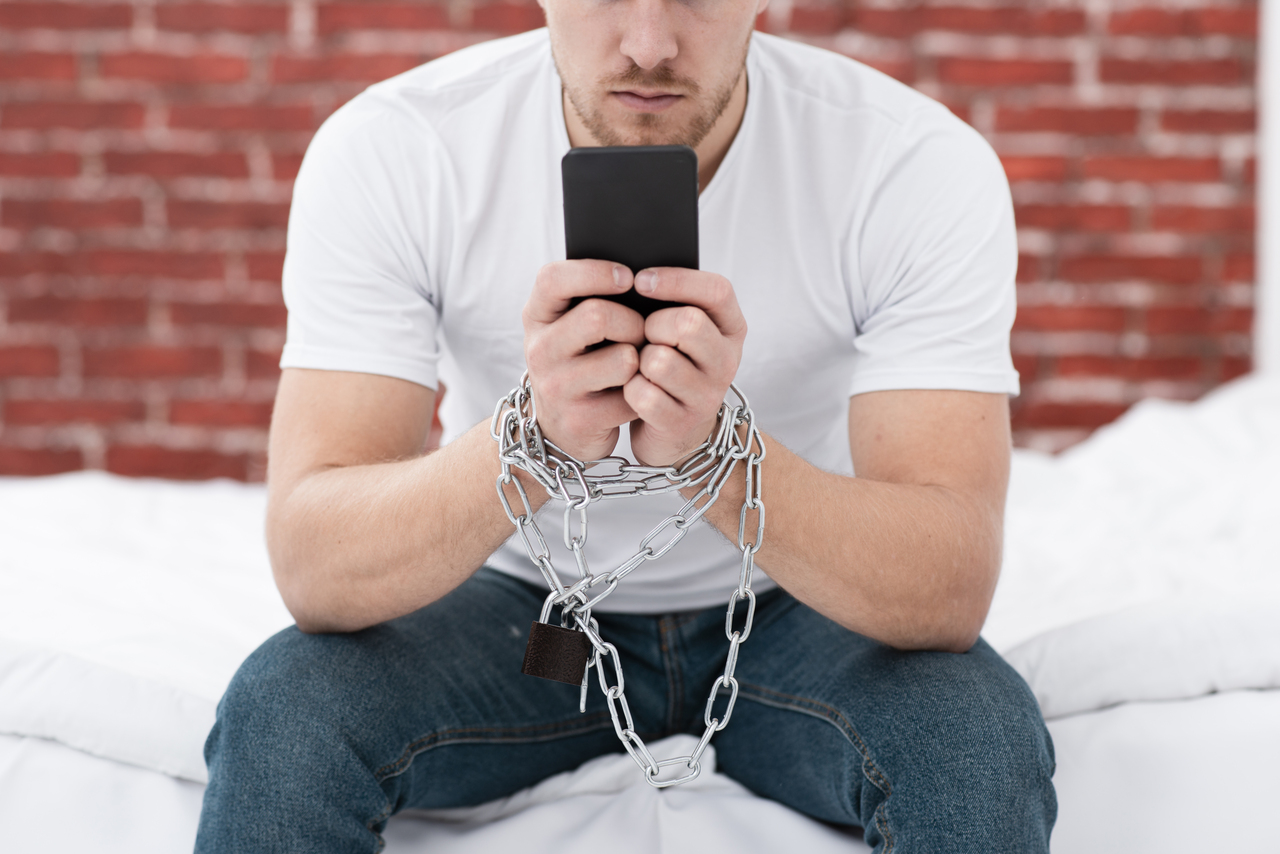
World Digital Detox Day – Today, March 7
A recent study reveals that Hispanics check their devices for notifications up to 20 times per hour, contributing to anxiety.
9:46 PM: The Perfect Time for Hispanics to Turn Off Notifications, Reduce Stress, and Sleep Better
- A study conducted for Kindle reveals that Hispanics check their devices for notifications up to 55 times per hour, contributing to the fact that the vast majority (89%) feel stressed at bedtime.
- More than a quarter try to relax by reading a book, but notifications keep interrupting them, leading them to check their phones until the moment they go to sleep.
- The average bedtime is 10:46 PM, so neuroscientist Mark Williams recommends at least one hour without notifications to unwind before sleep.
From the moment we wake up until we finally lay our heads on the pillow, we are bombarded with device notifications demanding our attention. As a result, Hispanics admit to frequently feeling distracted and stressed by the end of the day. The pressure to stay connected is constant: more than a quarter (26%) of Hispanics receive notifications right up until they go to sleep at 10:46 PM, according to a new study by Amazon Kindle.
On the eve of Global Unplugged Day, celebrated on March 7, research commissioned by Kindle suggests that 9:46 PM should be the cutoff time for Hispanics to turn off notifications and engage in a relaxing activity for better sleep. Internationally recognized neuroscientist and author Dr. Mark Williams recommends that we “spend at least one hour at night without notifications to give our minds time to relax.”
We receive notifications from smartphones, smartwatches, laptops, and tablets throughout the day, which causes more than half (62%) of people to feel frequently distracted.
“When we hear a notification sound or feel our phone vibrate, our brain interprets it as something requiring immediate attention, keeping us in a constant state of alert,” explains Dr. Williams. “Every time a notification diverts our attention, it takes us between 60 and 90 seconds to refocus on the task we were originally doing. These interruptions waste time, leading to a decline in efficiency.”
Not only do notifications distract us when they appear, but more than three-quarters (89%) of Hispanics check their devices every hour, hoping for a new notification—some up to 55 times per hour. Dr. Williams says this behavior is similar to addictive tendencies:
“Notifications can trigger dopamine release, leading people to compulsively check their phones in anticipation of a new alert.”
These addictive notifications negatively impact attention and concentration, leaving 89% of users feeling stressed at night. Two out of five (41%) struggle to relax, resorting to activities like watching TV (71%), listening to music (61%), and reading books (28%) in an attempt to unwind.
A Distraction-Free Reading Experience
Those who use reading to relax can benefit from a Kindle, a distraction-free device with no notifications, an anti-glare screen, and an adjustable warm light.
According to Dr. Williams, “How you feel at the end of the day affects how you relax best. You may enjoy reading a romance novel or prefer diving into a dystopian world.” The Kindle Store offers access to thousands of books at your fingertips.
However, our nighttime relaxation isn’t free from distractions—more than half (54%) say they frequently get distracted by incoming notifications. Once in bed, more than three-quarters (80%) admit they stay up later than planned due to checking device notifications.
Dr. Williams’ Tips to Disconnect and Relax Before Bedtime
- At least an hour before bed, turn off laptops, tablets, and computers, set your phone to sleep mode, and keep it out of sight. These devices are designed to distract and demand attention, keeping you in high alert mode.
- Limit the number of notification-enabled devices in your bedroom. If you use your phone as an alarm, consider buying a digital alarm clock or an Echo Spot. Your sleeping space should be dark, cool, and quiet, free from distractions.
- Avoid caffeine, nicotine, and alcohol before bed, as these are stimulants that interfere with sleep quality.
- Before winding down, jot down some notes in a journal, notebook, or Kindle Scribe with paper-like writing feel. Write about your day, what went well, what didn’t, what you could do differently next time, and your goals for tomorrow. This helps slow down your thoughts and starts the brain reset process.
- Reading is an excellent way to spend the last hour before sleep—but not on a device that sends notifications. A Kindle is a great alternative because it doesn’t beep or vibrate, allows you to adjust screen brightness, and offers a wide selection of books tailored to your mood, helping you unwind.
Credits: Amazon Devices and Services











LEAVE A COMMENT: